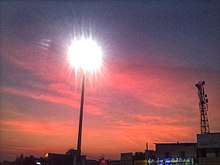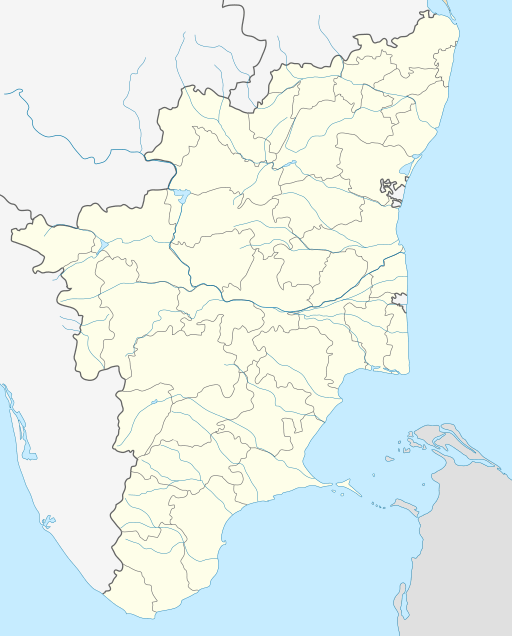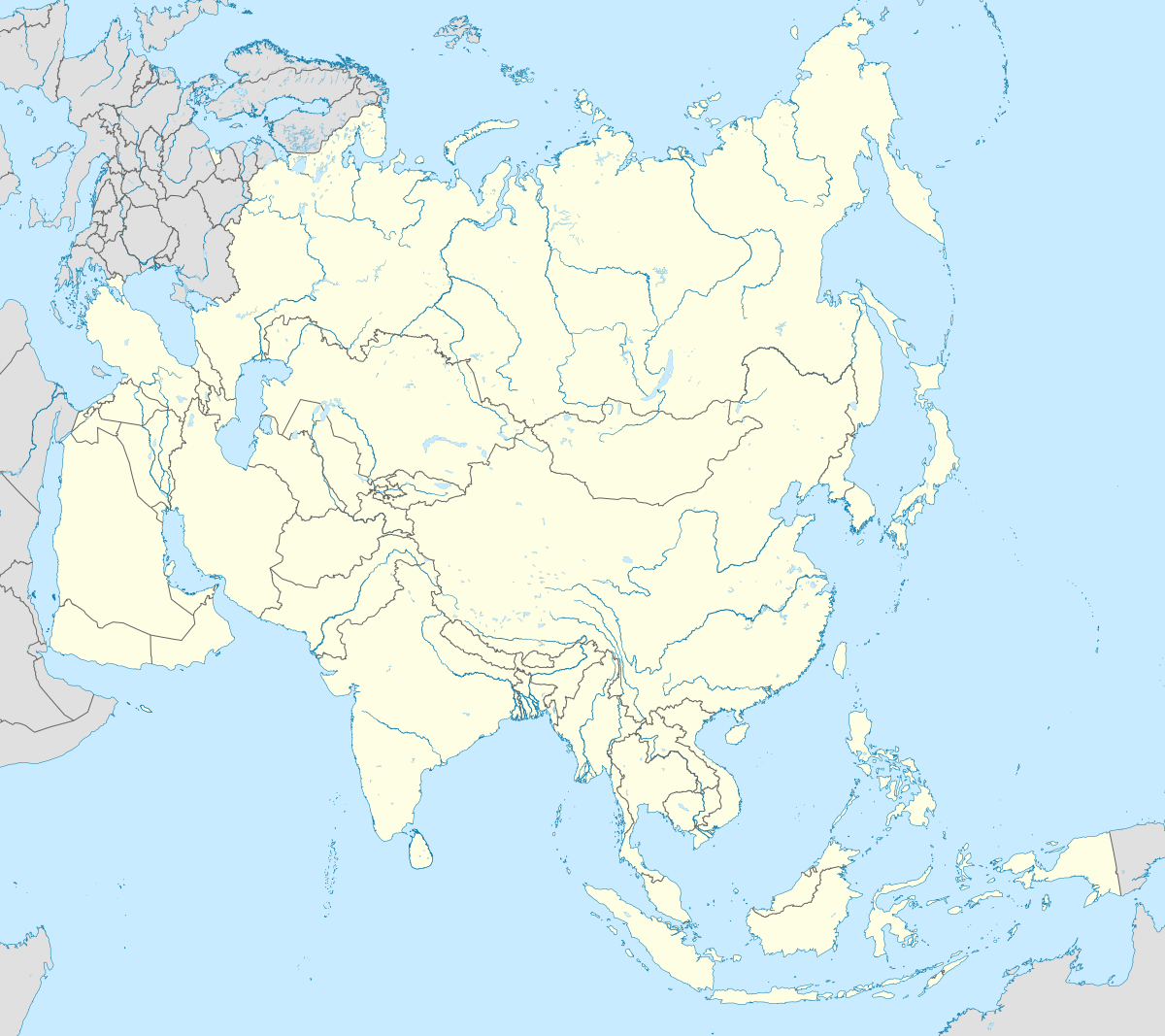Arachalur
Arachalur is a panchayat town in Erode district in the state of Tamil Nadu, India. It is situated 22 kilometres from Erode and an important junction on SH 37 en route to Palani and other important small towns like Kodumudi and Chennimalai.

Arachalur | |
|---|---|
Village | |
 Arachalur Location in Tamil Nadu, India  Arachalur Arachalur (India)  Arachalur Arachalur (Asia) | |
| Coordinates: 11°8′37″N 77°40′43″E | |
| Country | |
| State | Tamil Nadu |
| Region | Kongu Nadu |
| District | Erode |
| Population (2001) | |
| • Total | 12,313 |
| Languages | |
| • Official | Tamil |
| Time zone | UTC+5:30 (IST) |
| PIN | 638101 |
| Telephone code | 0424 |
Demographics
As of 2001 India census,[1] Arachalur had a population of 12,313. Males constitute 50% of the population and females 50%. Arachalur has an average literacy rate of 59.4%, lower than the national average of 59.5%; with 57% of the males and 43% of females literate. 8% of the population is under 6 years of age.
- There is one Arts and Science college for women: Navarasam Arts and Science college.
- The Government Higher Secondary School placed in first rank in the Erode district in academic category.
It has good bus facilities with availability of bus for every 15 minutes connecting various places like Erode, Kodumudi, Palani and some other places. The people have good relationships with each other and greet all the people gracefully.
Neighborhoods
- Muthur
- Sivagiri
- Modakurichi
- Vellakoil
- Chennimalai
- Vellode
- Kodumudi
- Thamaraipalayam
- Vilakkethi
- Thalavumalai
- Nathakaadaiyur
Jain Inscriptions
There are three 2nd century C.E. Jain inscriptions in Arachalur, which Dr. S. Raju discovered. On a Jain bed in the Arachalur hills, is an inscription — ‘ezhuthum punaruthan maniya vannakkan devan sathan.’ The word ‘punaruthan’ is an alteration of punarthan, which means organised.[2] The other two inscriptions have musical syllables, which are the same when read from left to right, and vice versa; they are also the same when read from the top of a column to the bottom and vice versa. These two inscriptions show that 'Maniyan Vannakkan Devan Sathan' organised musical syllables. “This inscription, which belongs to the same period as Silappadikaram, is centuries older than the 'Kudumiyamalai inscriptions' on music, and yet the Arachalur inscription hardly draws visitors,” rues Dr.S. Raju.[2]
Dr. S. Raju says that the contribution of Kongu Jains to Tamil was immense. “Konguvelir, who wrote Perunkathai, based on Durvineetha’s Brihatkatha, must have been a Kongu Vellala Jain. A Sanskrit inscription in the Vijayamangalam Jain temple, talks of the beauty of Perunkathai. This temple was built in 678 C.E. So Konguvelir must have lived in Vijayamangalam around this time.”[2]
Arachalai Amman Temple
This ( Padai Vettum Pathrakali ) temple was built by O. S. Duraisamy Gounder, Kottarathottam. Annual festival comes in April–May months to bring Joy and wealth to the people of this village. The festival has the famous Pookuzhi, manchal neerattu (Turmeric water Abhishek), temple car and other common ceremonies/functions.
Nagamalai Andavar Temple
This Nagamalai temple is located at Thalavumalai known as Nagarajapuram; present temple was built by O.S.Duraiswamy Gounder and others. This temple has historical traces of carving in a small mountain range. There is a festival which is celebrated in the month of March known as panguni uthiram . On that day, around 10,000 persons are provided with free meals.[3]
Isai Kalvettu (Music inscription)
In this 'Thalavumalai' small mountain, there is a music inscription, in Tamil Brahmi letters; this is the oldest kallvettu (inscription)-( Fourth Century A.D ). This Thalavumalai is presently known as Nagarajapuram. [4]
References
- "Census of India 2001: Data from the 2001 Census, including cities, villages and towns (Provisional)". Census Commission of India. Archived from the original on 16 June 2004. Retrieved 1 November 2008.
- Krishnamachari, Suganthy (12 October 2017). "On how Kongu Nadu was a Jain bastion". The Hindu. ISSN 0971-751X. Archived from the original on 23 October 2019. Retrieved 8 September 2019.
- "Panguni Uthiram 2020 | Dates, Images | Holidify". www.holidify.com. Retrieved 13 July 2020.
- Subramanian, T. s (24 March 2012). "2,200-year-old Tamil-Brahmi inscription found on Samanamalai". The Hindu. ISSN 0971-751X. Retrieved 13 July 2020.